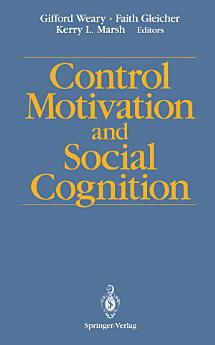Control Motivation and Social Cognition
Gifford Weary · Faith Gleicher · Kerry L. Marsh
Dez 2012 · Springer Science & Business Media
E-Book
344
Seiten
reportBewertungen und Rezensionen werden nicht geprüft Weitere Informationen
Über dieses E-Book
Over the past two decades theorists and researchers have given increasing attention to the effects, both beneficial and harmful, of various control related motivations and beliefs. People's notions of how much personal control they have or desire to have over important events in their lives have been used to explain a host of performance and adaptational outcomes, including motivational and performance deficits associated with learned helplessness (Abramson, Seligman, & Teasdale, 1978) and depression (Abramson, Metalsky, & Alloy, 1989), adaptation to aging (Baltes & Baltes, 1986; Rodin, 1986), cardiovascular disease (Matthews, 1982), cancer (Sklar & Anisman, 1979), increased reports of physical symptoms (Pennebaker, 1982), enhanced learning (Savage, Perlmutter, & Monty, 1979), achievement-related behaviors (Dweck & Licht, 1980; Ryckman, 1979), and post abortion adjustment (Mueller & Major, 1989). The notion that control motivation plays a fundamental role in a variety of basic, social psychological processes also has a long historical tradition. A number of theorists (Heider, 1958; Jones & Davis, 1965; Kelley, 1967), for example, have suggested that causal inferences arise from a desire to render the social world predictable and controllable. Similarly, control has been implicated as an important mediator of cognitive dissonance (Wicklund & Brehm, 1976) and attitude phenomena (Brehm & Brehm, 1981; Kiesler, Collins, & Miller, 1969). Despite the apparent centrality of control motivation to a variety of social psychological phenomena, until recently there has been relatively little research explicitly concerned with the effects of control motivation on the cognitive processes underlying such phenomena (cf.
Dieses E-Book bewerten
Deine Meinung ist gefragt!
Informationen zum Lesen
Smartphones und Tablets
Nachdem du die Google Play Bücher App für Android und iPad/iPhone installiert hast, wird diese automatisch mit deinem Konto synchronisiert, sodass du auch unterwegs online und offline lesen kannst.
Laptops und Computer
Im Webbrowser auf deinem Computer kannst du dir Hörbucher anhören, die du bei Google Play gekauft hast.
E-Reader und andere Geräte
Wenn du Bücher auf E-Ink-Geräten lesen möchtest, beispielsweise auf einem Kobo eReader, lade eine Datei herunter und übertrage sie auf dein Gerät. Eine ausführliche Anleitung zum Übertragen der Dateien auf unterstützte E-Reader findest du in der Hilfe.





